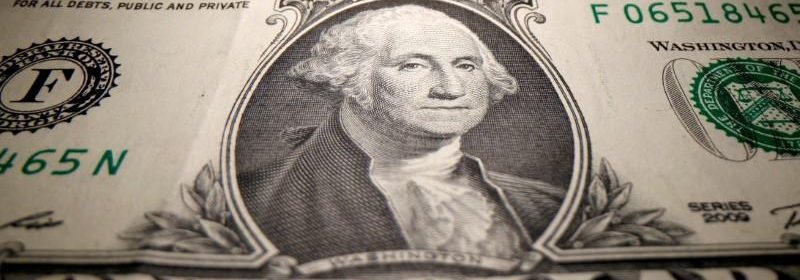Dollar soft as Delta fears ease ahead of Jackson Hole

TOKYO (Reuters) – The dollar held near a one-week low on Thursday amid optimism the Delta coronavirus variant won’t derail a global economic recovery, with investors now eyeing the Fed’s Jackson Hole symposium for clues on the timing of a tapering of monetary stimulus.
The dollar index, which measures the currency against six rivals, edged up 0.05% to 92.867 after dropping to 92.801 overnight for the first time since Aug. 17.
The Australian dollar, sometimes viewed as a barometer of risk appetite, slipped 0.07% to $0.7269, not far from a one-week high of $0.72805 reached the previous day.
Investors have turned more positive on the outlook since the U.S. Food and Drug Administration fully approved the COVID-19 vaccine made by Pfizer and BioNTech on Monday, in a move that could accelerate U.S. inoculations.
Full approval of other vaccines are set to follow shortly, and on Tuesday, Dr. Anthony Fauci, the top U.S. infectious disease expert, said COVID-19 could be under control by early next year.
Overnight, data showed new orders for key U.S.-made capital goods were steady in July, while an acceleration in shipments suggested business investment in equipment could offset an anticipated slowdown in consumer spending and keep the economy on a solid growth path in the third quarter.
Against the euro, the dollar was little changed at $1.17685 on Thursday, after touching a one-week low of $1.1775 the previous day.
It was also largely flat at 109.975 yen, another safe haven currency, meandering near the centre of its trading range since early July.
The focus at Friday’s symposium in Jackson Hole, Wyoming will be Fed Chair Jerome Powell’s speech, which will be parsed for clues on the timing and pace of tapering of monetary stimulus.
Signals that Fed officials viewed a taper this year as most likely had helped buoy the dollar index to a 9-1/2-month high of 93.734 last Friday. That was before Dallas Fed President Robert Kaplan, among the U.S. central bank’s most forceful advocates for starting to reduce support for the economy, said he may need to adjust that view if the coronavirus slows economic growth materially.
Still, many market watchers say the dollar has yet to peak.
“I don’t think Powell or anyone else at the Fed is going to be too aggressive in their language about tapering any more,” said Kyle Rodda, an analyst at IG Markets. “The dollar keeps moving higher in my opinion just on the basis that sooner or later the Fed is going to taper.”
Some analysts even suggest a delay itself could strengthen the dollar.
“While this would be a USD negative factor on one hand, Delta worries may simultaneously increase the safe-haven appeal for the USD,” Jane Foley, a strategist at Rabobank, wrote in a research note.
“While pullbacks are likely to be par for the course, we see scope for EUR/USD to head towards $1.16 on a six-month view.”
Source: Read Full Article
